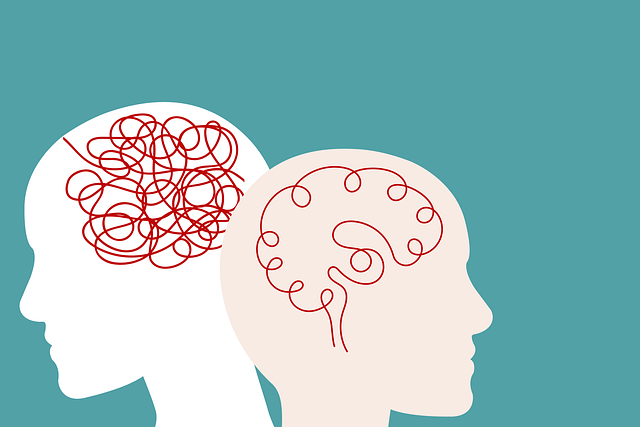In demanding modern times, managing mental wellness is crucial, particularly in areas like Highlands Ranch where stress, anxiety, and interpersonal issues are prevalent. Self-assessment tools such as journaling and self-awareness exercises enable individuals to take charge of their emotional health through introspection, mood tracking, and pattern recognition. Highlands Ranch Interpersonal Issues Therapy (HRIIT) offers a pioneering approach by focusing on complex interpersonal dynamics as the foundation for mental health issues, integrating cultural sensitivity into practices, and providing tailored coping skills. Key areas for self-evaluation include relationships and communication styles. Effective self-assessment tools should be culturally sensitive, interactive, and incorporate risk assessment to enhance timely interventions. Continuous improvement through reviews, feedback, and diverse advisory boards ensures these tools cater to diverse populations and bolster HRIIT's overall therapeutic effectiveness.
Mental wellness self-assessment tools play a pivotal role in navigating today’s complex emotional landscape. As we face increasing mental health challenges, these tools empower individuals to take charge of their well-being. This article explores the development of such assessments, focusing on the unique contributions of Highlands Ranch Interpersonal Issues Therapy. From understanding key areas like interpersonal relationships to designing effective tools and ensuring cultural sensitivity, this comprehensive guide offers insights into creating impactful self-assessment resources.
- Understanding Mental Wellness Self-Assessment: A Need in Modern Times
- The Role of Highlands Ranch Interpersonal Issues Therapy in Self-Assessment Development
- Identifying Key Areas for Self-Evaluation: Interpersonal Relationships and More
- Designing Effective Self-Assessment Tools: Features and Techniques
- Implementation and Continuous Improvement: Ensuring Cultural Sensitivity and Accuracy
Understanding Mental Wellness Self-Assessment: A Need in Modern Times

In today’s fast-paced world, understanding and managing mental wellness has become more crucial than ever. The complex nature of modern life, with its constant connectivity and high demands, can lead to heightened stress levels, anxiety, and interpersonal issues—problems that are not limited to urban centres but also prevalent in areas like Highlands Ranch. To address these challenges effectively, individuals must have access to tools that facilitate self-assessment and promote mental wellness. This proactive approach is essential for fostering emotional healing processes and cultivating a sense of balance.
Self-Assessment as a Catalyst for Change: Mental wellness journaling exercise guidance and self-awareness exercises play a pivotal role in this context. By providing individuals with the means to introspect, track moods, and identify patterns, these tools empower people to take charge of their mental health. This is especially important for navigating interpersonal issues therapy successfully, where understanding one’s emotional responses is key to cultivating healthier relationships and improving overall well-being.
The Role of Highlands Ranch Interpersonal Issues Therapy in Self-Assessment Development

Highlands Ranch Interpersonal Issues Therapy (HRIIT) plays a pivotal role in the development of comprehensive mental wellness self-assessment tools. This therapeutic approach is designed to explore and address complex interpersonal dynamics, which are often at the root of various mental health challenges. HRIIT facilitates individuals’ understanding of their relationships, communication patterns, and cultural influences, all of which contribute to unique coping mechanisms and stress responses.
By integrating Cultural Sensitivity in Mental Healthcare Practice and focusing on Healthcare Provider Cultural Competency Training, HRIIT empowers both therapists and clients. It encourages the development of coping skills that are tailored to individual needs and cultural backgrounds. This personalized approach ensures that self-assessment tools are more effective, sensitive, and inclusive, catering to a diverse range of users.
Identifying Key Areas for Self-Evaluation: Interpersonal Relationships and More

Identifying key areas for self-evaluation is a crucial step in any mental wellness journey, especially when considering Highlands Ranch interpersonal issues therapy. Beyond individual thought patterns and emotional states, the relationships we foster play a significant role in our overall well-being. Thus, assessing interpersonal dynamics becomes an integral part of comprehensive mental health assessment tools. This includes evaluating communication styles, conflict resolution strategies, and the quality of connections with family, friends, colleagues, and romantic partners.
Community outreach program implementation can enhance self-awareness by offering platforms for sharing experiences and learning from peers. Mental wellness coaching programs development often incorporate resilience building as a core component to help individuals navigate challenges in their interpersonal relationships more effectively. By focusing on these areas, self-assessment tools can empower people to cultivate healthier interactions, fostering better mental health outcomes.
Designing Effective Self-Assessment Tools: Features and Techniques

Designing effective self-assessment tools is paramount in mental wellness practices, such as those offered at Highlands Ranch Interpersonal Issues Therapy. These instruments play a pivotal role in understanding individuals’ psychological states and tailoring interventions accordingly. Incorporating various features enhances their efficacy. Firstly, ensure cultural sensitivity in the design to cater to diverse populations, reflecting the cultural sensitivity in mental healthcare practice. This involves considering cultural nuances and beliefs that might influence responses. Secondly, incorporate interactive and engaging formats to encourage honest and detailed self-reflection, making the process less intimidating.
Additionally, incorporating risk assessment components can be valuable for mental health professionals. These sections help identify potential red flags or warning signs of severe mental health issues, enabling prompt intervention. For instance, questions about suicidal ideation, self-harm, or severe depression should be included, along with guidance on seeking professional help. Moreover, integrating social skills training elements into the assessment can provide insights into an individual’s interpersonal dynamics and communication patterns, thereby offering a holistic view of their mental wellness journey.
Implementation and Continuous Improvement: Ensuring Cultural Sensitivity and Accuracy

Implementing a mental wellness self-assessment tool requires careful consideration of cultural sensitivity and accuracy to ensure its effectiveness across diverse populations. This is particularly crucial in areas like Highlands Ranch Interpersonal Issues Therapy, where therapists interact with individuals from various cultural backgrounds and experiences. Sensitivity to cultural nuances is essential to avoid stereotyping or misinterpreting symptoms or behaviors. Regular reviews and updates should be incorporated into the tool’s development process to reflect new research, best practices, and evolving societal norms.
Continuous improvement initiatives, such as engaging a diverse advisory board and collecting user feedback, can help refine the assessment’s validity and reliability. Incorporating these insights, along with evidence-based risk management planning for mental health professionals, ensures that the self-assessment tool remains relevant and beneficial to those seeking mental wellness support. Moreover, integrating lessons from successful Mental Wellness Podcast Series Production or well-designed Mental Health Education Programs can enhance the tool’s reach and impact, fostering a more inclusive and effective therapeutic landscape.
Mental wellness self-assessment tools, with a focus on interpersonal dynamics as highlighted by Highlands Ranch Interpersonal Issues Therapy, are vital resources for individuals to take charge of their mental health. By identifying key areas such as relationships, stress management, and emotional regulation through effective assessment techniques, these tools empower people to seek support or implement positive changes. Implementation should consider cultural sensitivity and accuracy to ensure widespread accessibility and benefit. Continuous improvement in development, guided by research and user feedback, is crucial to meeting the diverse needs of individuals navigating modern challenges.













